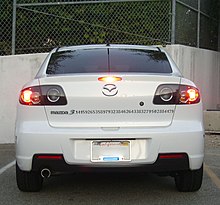This is an old revision of this page, as edited by 117.193.35.239 (talk) at 03:27, 13 December 2015 (Fixed grammar). The present address (URL) is a permanent link to this revision, which may differ significantly from the current revision.
Revision as of 03:27, 13 December 2015 by 117.193.35.239 (talk) (Fixed grammar)(diff) ← Previous revision | Latest revision (diff) | Newer revision → (diff) For other uses, see Geek (disambiguation).
The word geek is a [[slasomeone who is interested in a subject (usually intellectual or complex) for its own sake".
Etymology
This word comes from English dialect geek or geck (e German dialects, and in the Alsatian word Gickeleshut ("jester's hat"; used during carnival). In 18th century Austria-Hungary, Gecken were freaks on display
Definitions
The definition of geek has changed cod there is no longer a definitive meaning.rd]] has a similar, practically synonymous ociety. Whereas previous generations of geeks tended to operate in research departments, laboratories and support functions, now they increasingly occupy senior corporate positions, and wield considerable commercial and political influence. When U.S. President Barack Obama met with Facebook’s Mark Zuckerberg and the CEOs of the world’s largest technology firms at a private dinner in Woodside, California on 17 February 2011, New York magazine ran a story titled "The world’s most powerful man meets President Obama". At the time, Zuckerberg’s company had grown to over one billion users.
According to Mark Roeder the rise of the geek represents a new phase of human evolution. In his book, Unnatural Selection: Why The Geeks Will Inherit The Earth he suggests that "the high-tech environment of the Anthropocene favours people with geek-like traits, many of whom are on the autism spectrum, ADHD, or dyslexia. Previously, such people may have been at a disadvantage, but now their unique cognitive traits enable some of them to resonate with the new technological zeitgeist and become very successful."
The Economist magazine observed, on 2 June 2012, "Those square pegs (geeks) may not have an easy time in school. They may be mocked by jocks and ignored at parties. But these days no serious organisation can prosper without them."
Geek chic
For the book, see Geek Chic.
"Geek chic" refers to a minor fashion trend that arose in the mid 2000s in which young individuals adopted stereotypically "geeky" fashions, such as oversized black horn-rimmed glasses, suspenders/braces, and highwater trousers. The glasses—sometimes worn with non-prescription lenses or without lenses—quickly became the defining aspect of the trend, with the media identifying various celebrities as "trying geek" or "going geek" for wearing such glasses, such as David Beckham, Justin Timberlake, and Myleene Klass. Meanwhile, in the sports world, many NBA players wore "geek glasses" during post-game interviews, drawing comparisons to Steve Urkel.
As many of the other identifying characteristics of the trend, such as clip-on suspenders worn with short-sleeved shirts, were unsuitable for the business environment into which young adherents were entering, the trend quickly died out. However, heightened media awareness of the hipster subculture, which had simultaneously embraced thick-rimmed glasses, led to a conflation of hipster aesthetics with "geek chic." As a result, the media and social commentators continued erroneously referring to hipsters as "geek chic" after the trend had faded. The term is now nominally used in the world of retail optics, where it is similarly erroneously applied to both hipsters as well as retro style.
Self-application
In the wake of the fashion trend, the term "geek chic" was appropriated by some self-identified "geeks" to refer to a new, socially acceptable role in a technologically advanced society.
See also
- Anorak and Boffin, British slang for "geek"
- Akiba-kei and Otaku, Japanese slang for "geek"
- Autodidactism
- Behavior
- Diaosi
- Fantasy prone personality
- Geek Code
- Geek girl
- Geekcorps
- Girl Geek Dinners
- Nerd
- Norm (sociology)
- Philistinism
- Reappropriation
- Technosexual
References
- Cite error: The named reference
merriam-websterwas invoked but never defined (see the help page). - Beckett, Jamie (24 Oct 2012). "Study shows Stanford alumni create nearly $3 trillion in economic impact each year". Stanford News.
- The world’s most powerful man meets President Obama. Dan Amira. 18 February 2011. New York Magazine. http://nymag.com/daily/intelligencer/2011/02/the_worlds_most_powerful_man_m.html
- Unnatural Selection by Mark Roeder. http://www.harpercollins.com.au/books/Unnatural-Selection-Why-Geeks-Will-Inherit-Earth-Mark-Roeder/?isbn=9781743095683
- In praise of misfits. Economist. 2 June 2012. http://www.economist.com/node/21556230
- "Geeky Becks' specs appeal". The Sun. September 12, 2010. Retrieved March 1, 2013.
- "Nice glasses! Justin Timberlake is bringing geek chic back at the Social Network premiere". Daily Mail. September 25, 2010. Retrieved March 1, 2013.
- "Myleene Klass geek chic". Uk.stylelist.com. Retrieved 2014-06-30.
- "Whacky NBA Playoff Fashion!". YouTube. Retrieved 2012-06-26.
- Cacciola, Scott (2012-06-14). "NBA Finals: LeBron James, Dwyane Wade and Other Fashion Plates of the NBA Make Specs of Themselves". Online.wsj.com. Retrieved 2012-06-26.
- Fassel, Preston. "Geek Chic Was Last Week: Understanding the Retro Craze". The Optician's Handbook. Retrieved 2012-12-31.
- Lambert, Katie. "How Stuff works: Geek Chic". People.howstuffworks.com. Retrieved 2014-06-30.
External links
- Geek Culture: The Third Counter-Culture, an article discussing geek culture as a new kind of counter-culture.
- The Origins of Geek Culture: Perspectives on a Parallel Intellectual Milieu, an article about geek culture seen in a cultural historical perspective.
- Hoevel, Ann. "Are you a nerd or a geek?" CNN. December 2, 2010.
- "Geek Chic", USA Today, October 22, 2003
- "How Geek Chic Works"